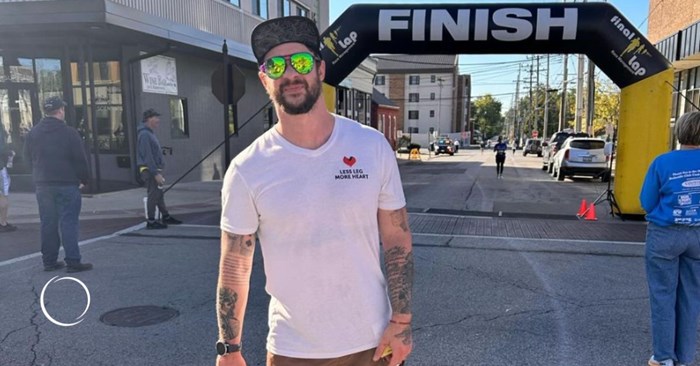Limb Loss and Limb Difference Awareness Month: Down a leg, up a life

Sam Schaefer said nothing has stopped him in the three and half years since his leg amputation. He decided to go forward with the amputation almost a decade after he injured his foot in the Air Force during a training exercise.
"I don't feel limited using a prosthetic," said Schaefer. "There's literally nothing that I've tried to do, other than wiggle ten toes, that I can't do or that I can't figure out. I've got to figure out how to do some stuff differently, but I signed up for that."
He said after years of suffering chronic pain, the amputation now allows him to live a life he loves.
"One hundred percent chance had I not had the amputation, I'd be in a wheelchair by now," said Schaefer. "I couldn't even live in the house that I live in if I was in a wheelchair. There are steps outside both doors. It gave me my life. I almost want to say it gave me my life back, but my life was gone. I was in severe pain, not sleeping and everything that could spiral off that did. Mental health, social health, I barely clung to the physical health that I could. Now, I don't have these obstacles in my way anymore."
Amputation allows a fitness fanatic to thrive
Schaefer continues to be a fitness fanatic. He just fought and won his first kickboxing match in February 2024. He is playing disc golf. He is also preparing for a 30-kilometer trail run in Bryce Canyon National Park.
"I am wildly excited about this experience," said Schaefer. "I'm not going there to set any land speed records. I want to be in shape enough to appreciate the experience that I've given myself by signing up, doing the work and showing up."
He also continues to coach. He said learning alternative ways of doing activities because of his amputation has helped him become a better coach to people of all abilities and physical fitness levels.
"It's put a lot more tools in my tool chest that most coaches will never have, and fortunately for them," said Schaefer. "Training myself as an amputee in movement, every strategy that I've had to learn gives even bigger results to somebody who has full capacity and capability."
He's also coaching new amputees virtually on video calls through the Less Leg More Heart organization. According to Schaefer, physical training for amputees can be difficult to find.
"Through the magic that is Zoom, I've now been able to provide personal training to over a dozen amputees in the last year that has been zero out-of-pocket cost to the amputee," said Schaefer. "They get somebody who understands what they're doing, that is very tapped into the learning process, is very tapped into body mechanics but also knows what it's like to learn how to walk on a prosthetic."
Schaefer believes anyone with an amputation needs to become a problem solver.
"I have found zero things that I just flat out can't do because I'm an amputee," said Schaefer. "There are things that I can't do because I haven't learned how to do it, but it's not because of my prosthetic. If you can lean into the skills of how you learn and you can hone your skillset for problem-solving, it's all just a matter of when."
No stopping his next steps
In fact, Schaefer said it's just a matter of time before his next physical feat which is likely to be climbing mountains in Ecuador before the end of the year with the Range of Motion Project (ROMP), which ensures access to prosthetics care for underserved people. He also plans to do another hike.
"I am looking at a 50-mile ruck [walk with a weighted backpack] at the end of the year with an organization called 50 For The Fallen," said Schaefer. "It's a veterans' organization. In general, I'm just trying to say 'yes' when adventure calls."
In addition, he wants to try more sports, like Jujitsu, and expand his service to others. His next project is to help improve physical therapy for amputees.
To find a qualified plastic surgeon for any cosmetic or reconstructive procedure, consult a member of the American Society of Plastic Surgeons. All ASPS members are board certified by the American Board of Plastic Surgery, have completed an accredited plastic surgery training program, practice in accredited facilities and follow strict standards of safety and ethics. Find an ASPS member in your area.
